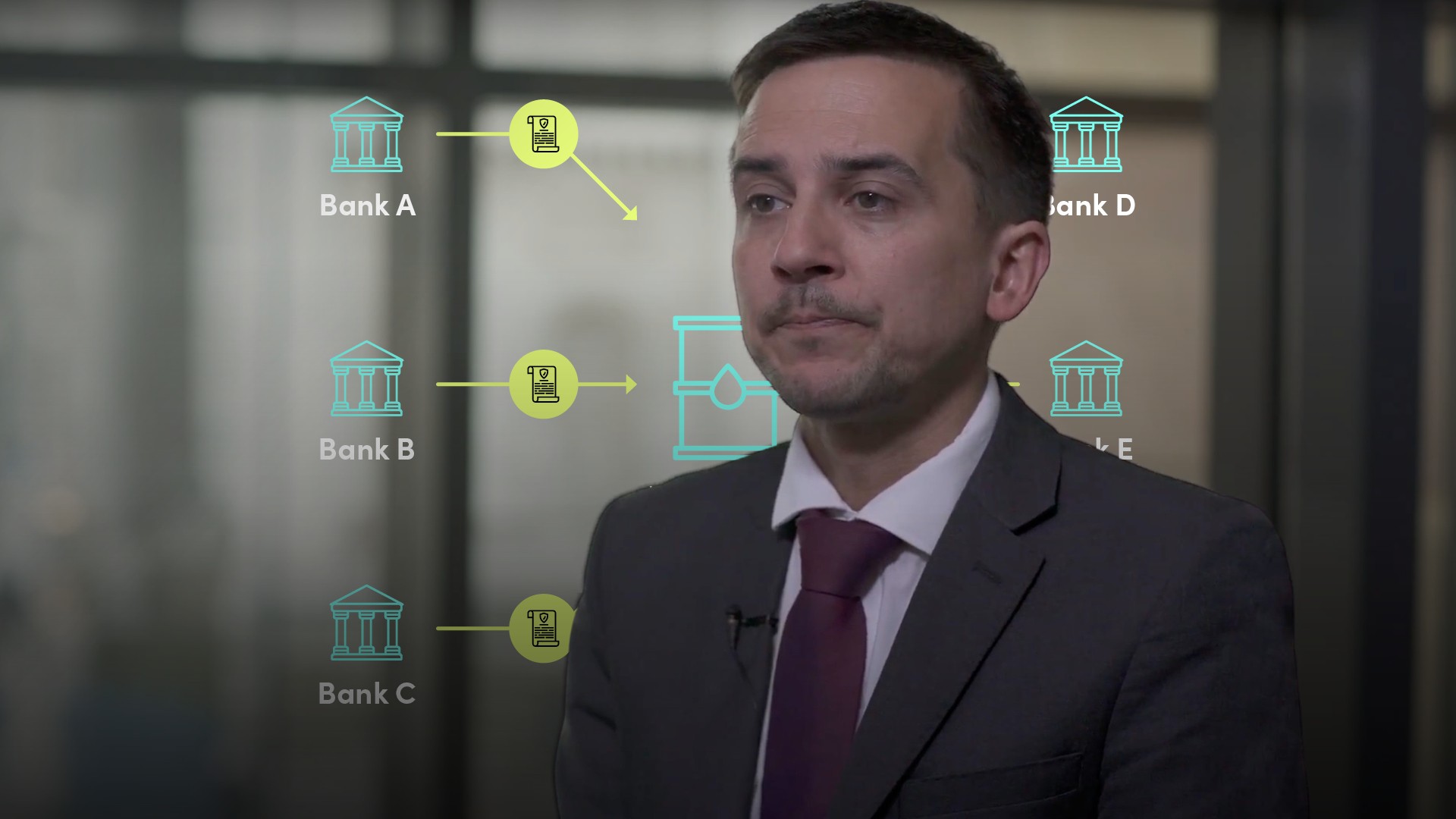
Legal Documentation in Trade Finance

Andy Sweeney
20 years: Trade finance & banking
In Trade Finance the documentation is the same regardless of the transaction size. In this video, Andy explains the different types of documentation required for a transaction.
In Trade Finance the documentation is the same regardless of the transaction size. In this video, Andy explains the different types of documentation required for a transaction.
Subscribe to watch
Access this and all of the content on our platform by signing up for a 7-day free trial.

Legal Documentation in Trade Finance
4 mins 11 secs
Key learning objectives:
Explain the purpose of each agreement
Identify the main legal agreements in trade finance
Recognise the additional documentation required to satisfy each agreement
Overview:
In order to transact successfully, you need to be able to originate and manage transactions from the initial call through to successful repayment. Legal documentation is required to define the relationship between the client and the financier at each stage of the transaction. The main forms are: the Trade Finance Facility Agreement (TFF), the Security Agreement and the Facility Agreement.
Subscribe to watch
Access this and all of the content on our platform by signing up for a 7-day free trial.
What is the Trade Finance Facility Agreement?
A Trade Finance Facility Agreement (TFF) provides a framework around which transactions are funded.
Typically it is for a defined period of between one and three years and it gives the client the right to request funding from the trade financier for multiple transactions during that period.
There will often be a non-utilisation fee or minimum usage requirements to ensure that the financier does not lose out if no transactions occur.
What is the Security Agreement?
The Security Agreement provides the security for the lender, ensuring that each transaction is fully secured. Typically this includes two sections:
- The Assignment of Receivables gives the financier a claim over the incoming payment from the Buyer. This is often backed up by requiring the payment to be made into a specific Collection Account. This can often be replaced by or supplemented by a Charge Over Bank Accounts
- A trade financier will also normally require a Trust Receipt which states that when goods are paid for by the financier, they are held in a bailor/bailee relationship, with the client effectively now handling them on behalf of the financier. This will normally be backed up by a Letter of Pledge, whereby transport documents, insurances etc. are pledged by the client to be held for the financier’s benefit
What is the Facility Agreement?
The Facility Agreement normally contains conditions that need to be met, such as the client needing to provide invoices, bills of lading and copies (or occasionally originals) of any required documentation.
The quantity of documentation on a transaction can be large and careful checks need to be made to ensure that the security position is maintained. No matter how much you trust a client, there are often multiple counterparties involved in a transaction and so any checks made are not just checks upon your client, but a safeguard to protect them against other less scrupulous people.
Subscribe to watch
Access this and all of the content on our platform by signing up for a 7-day free trial.

Andy Sweeney
There are no available Videos from "Andy Sweeney"



























